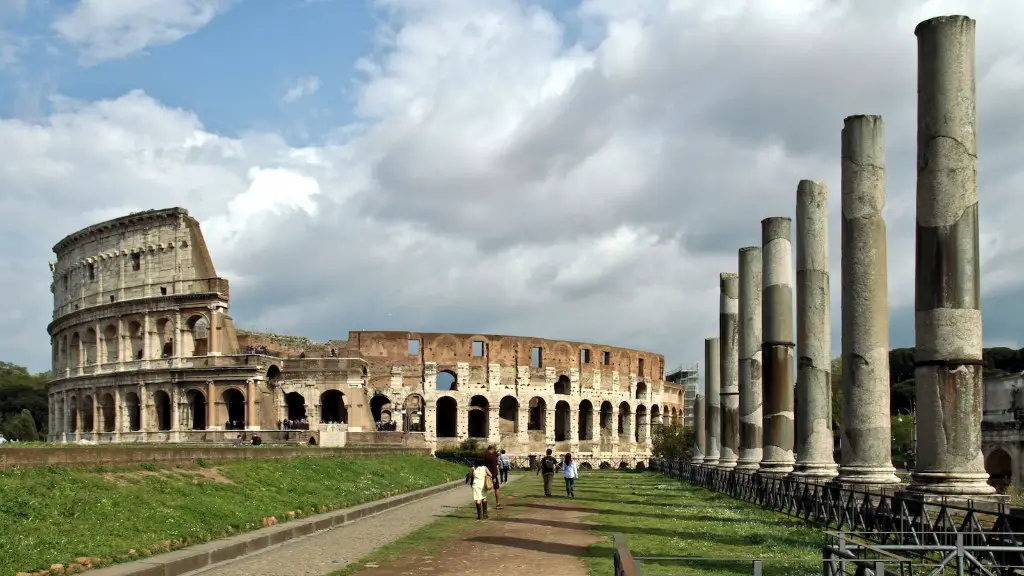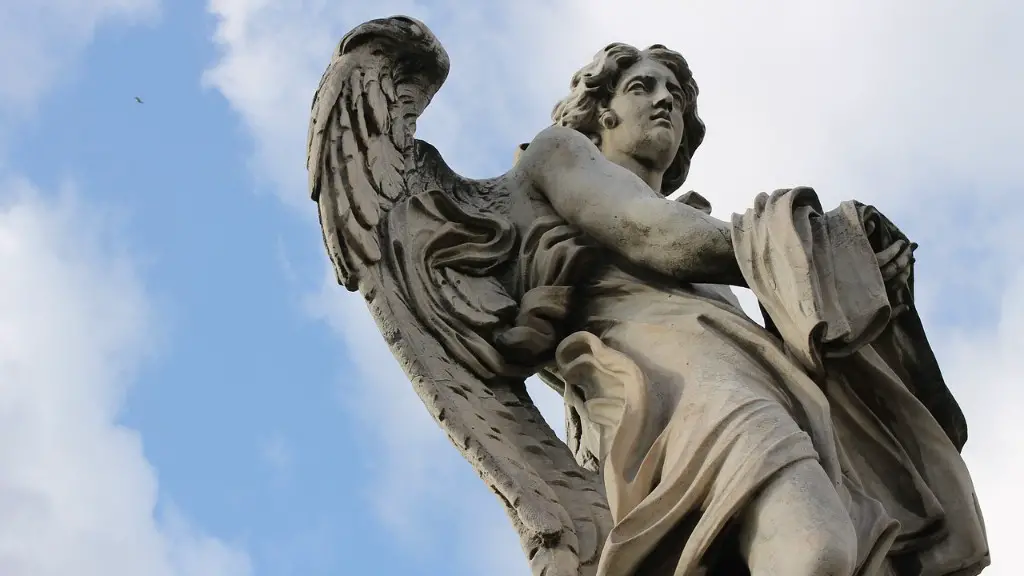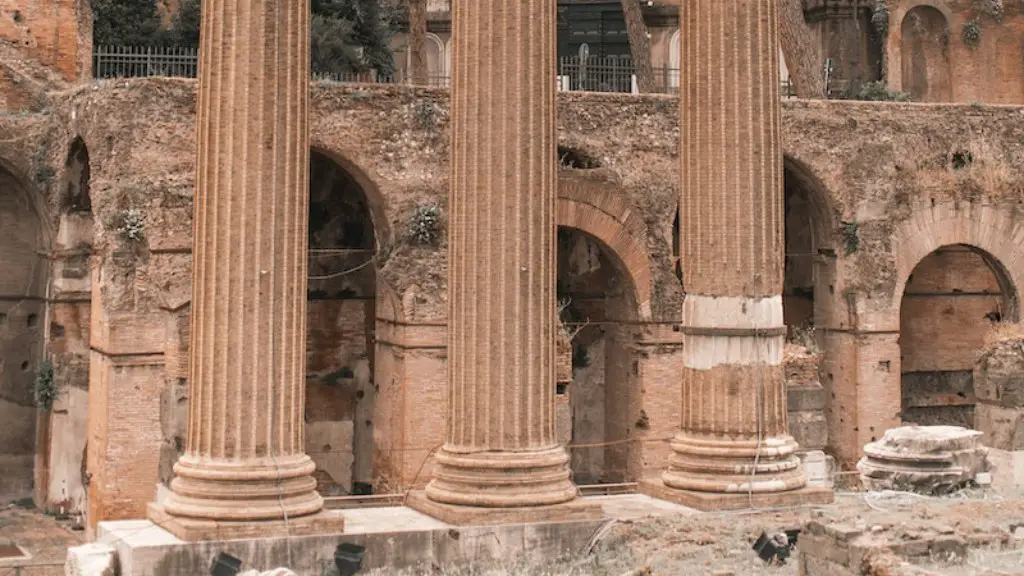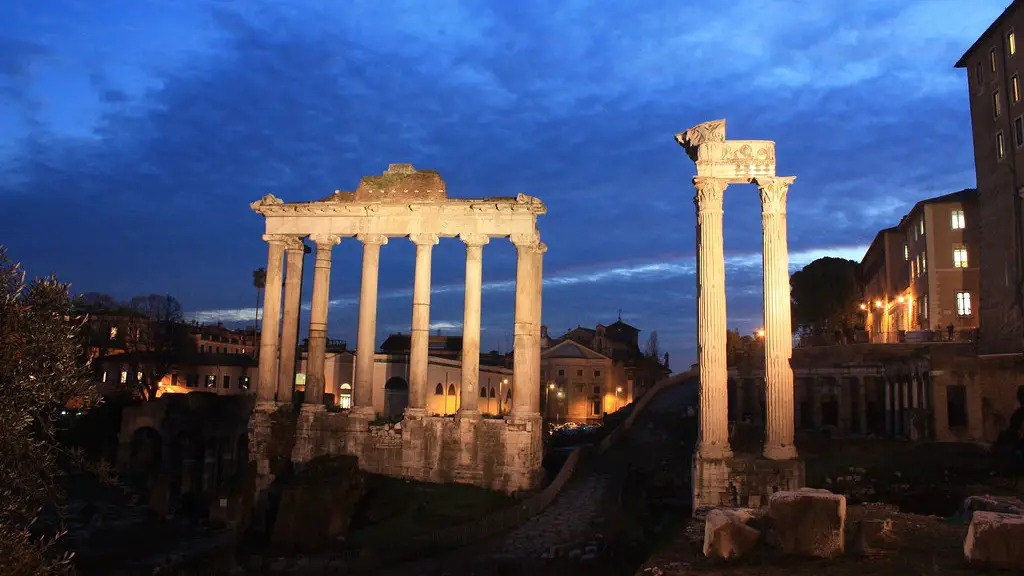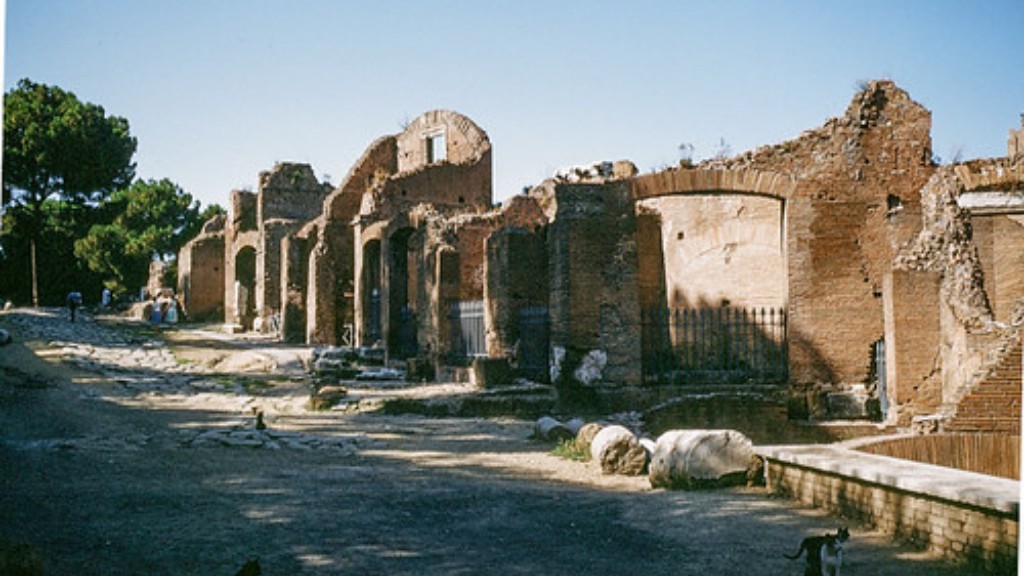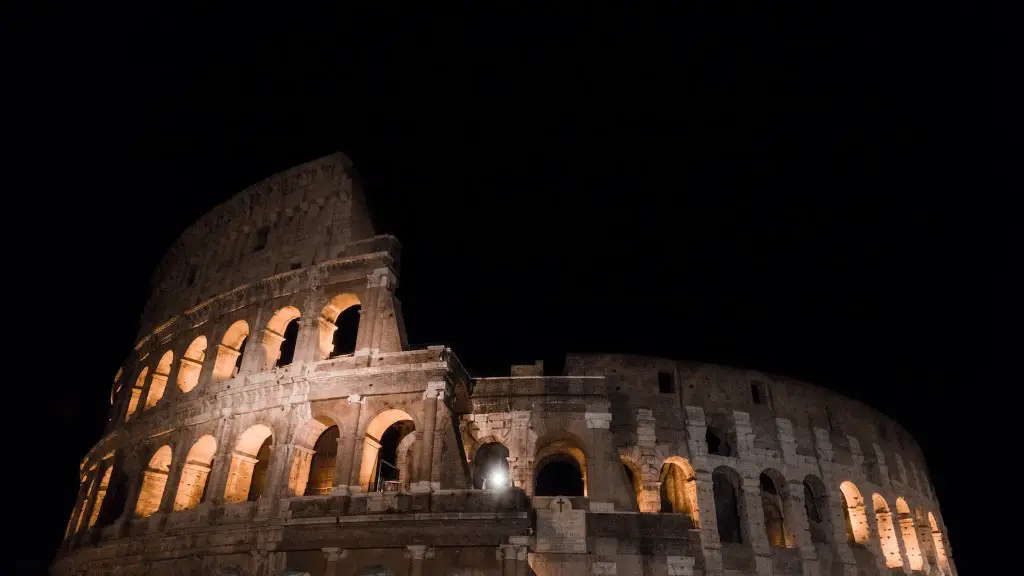Ancient Rome has been described as one of the greatest civilizations in history, and it is no surprise that the religion of the time had enormous influence. Throughout its history, the religion of Rome has been shaped by the various rulers the empire has seen, and it has undergone many changes. From its Greek roots to the Christianization of the empire, the beliefs and practices of Rome have shaped the history of the world.
The early period of Roman history, known as the Republic, saw the original pantheon of twelve gods. This pantheon, headed by Jupiter, was derived from the Greek religion of the time. These gods were deeply embedded in the everyday life and culture of the people of Rome. Religion was an integral part of ritual and state, and was integral to the functions of their government. Religion was also intimately tied to the military, and many religious festivals were held to honour their gods.
The religion of the Roman Empire changed drastically after Julius Caesar’s rise to power. With the adoption of Christianity as the official religion of the empire, all aspects of Roman religious life became intertwined with the new faith. As Christianity spread, the old pantheon of gods was replaced by the worship of the new god. This shift in religious practice also had an immense impact on the political structure of the empire. With the fall of the Roman Empire, the traditional Roman pantheon of gods was largely forgotten.
In modern times, Roman religion has seen a resurgence in popularity, as more and more people become interested in the history and culture of Ancient Rome. Many scholars have studied this period of history, and have been able to piece together many aspects of Roman religion. From the rituals and beliefs of the early Republic, to the introduction and growth of Christianity, the religion of Ancient Rome is an endlessly fascinating topic of study.
Despite the changes over the centuries, AncientRoman religion still remains an integral part of today’s society. It is evident in the holidays and celebrations we observe, in the names of days of the week and in our art and literature. By studying the beliefs and practices of Ancient Rome, we can gain a greater understanding of our past, and appreciate the impact of religion on our modern culture.
Roman Pantheon of Gods
The original Roman pantheon of gods was derived from the Greek religion and served as the dominant religion of Ancient Rome. This pantheon was headed by Jupiter, and the other gods included Mars, Mercury, Venus, Juno and Apollo. The gods were surrounded by cults of worshippers who followed their worship and performed their rituals. These gods were closely associated with the various aspects of life in Ancient Rome, from the military to the agricultural.
Religion in Ancient Rome was closely intertwined with the government. Elections were said to be regulated by the gods, and many of the most important political decisions were ascribed to them. The Roman Senate and other government buildings were adorned with statues of the gods, and were centers of religious activity.
Religion was closely associated with the military as well. Before a battle, soldiers would offer sacrifices to the gods, and would carry with them images of the gods when they went into battle. Religious festivals were also held to honor the gods and were occasions of great jubilation. Religion was a major part of life, and was deeply integrated into the culture of Ancient Rome.
The Roman pantheon of gods was eventually replaced by the rise of Christianity as the official religion of the empire. The worship of the old gods was replaced with Christianity, and the cults that had been associated with the gods dissipated over time. However, the influence of Roman religion can still be felt today in the names of days of the week, the festivals that we celebrate, and in some aspects of the modern government.
Religion and Politics
The religion of Ancient Rome had a deep influence on the political structure of the empire. Religion was closely intertwined with the government, and many of the most important decisions of the Republic were said to be based on the will of the gods. The Senate was adorned with statues of the gods, and was a center of religious activity.
Religion was also closely linked to the military. Before a battle, soldiers would offer sacrifices to the gods, and would carry with them images of the gods when they went into battle. Many religious festivals were held to honor the gods, and were occasions of great happiness and celebration. This close connection between religion and politics had a great influence on the structure of the Roman Empire.
The shift towards Christianity as the official religion of the Roman Empire changed the political structure of the Empire drastically. By adopting a new faith, the roles of the gods in politics were drastically reduced, and the traditional pantheon of gods was replaced with the worship of the Christian God. This change in religion had a profound impact on the structure and power of the government, and the fall of the Roman Empire has been linked to this religious shift.
Despite the changes over the centuries, the influence of Roman religion on modern governments is undeniable. From the structure of elected officials to the symbols associated with the political structure, the legacy of Roman religion on the form and function of governments can still be seen today.
Modern Influence of Roman Religion
The influence of Roman religion can still be seen today in everything from holidays and celebrations, to the names of days of the week and the symbols associated with our political structure. The legacy of Roman religion can be found in the modern celebrations of Easter and Christmas, as well as in the names of the days in a week. Even the structure of elected officials, from the presidents and prime ministers to mayors and councils, have their roots in the political structure of Ancient Rome.
The influence of Roman religion is still felt in the art and literature of today. From the grand sculptures and paintings that adorn galleries and theatres to the plays and operas based on the stories of the gods, Roman religion is still present in our culture. Even the language we use has been deeply affected by Roman religion, as many Latin words are still a part of our vocabulary.
By studying the beliefs and practices of Ancient Rome, we can gain a greater understanding of our past, and appreciate the impact of religion on our modern culture. Religion played an integral role in the political decisions of the Republic, and it can still be seen in the political structures of today. From the holidays we celebrate, to the language we use, the influence of Ancient Rome on our world cannot be understated.
Popularity of Roman Religion
In modern times, Roman religion has seen a resurgence in popularity as more and more people become interested in the history and culture of Ancient Rome. Many scholars have studied this period of history, and have been able to piece together many aspects of Roman religion. From the rituals and beliefs of the early Republic, to the introduction and growth of Christianity, the religion of Ancient Rome is an endlessly fascinating topic of study.
Despite the changes it has undergone over the centuries, the religion of Rome remains an integral part of today’s society. This is evident in the holidays and celebrations we observe, in the names of days of the week and in our art and literature. Furthermore, many of the rituals and beliefs of Ancient Rome are still practiced in some form today, such as the use of incense, candles and offerings to the gods.
The religion of Ancient Rome is not only an interesting topic of study, but also has a profound impact on our modern culture. From the structure of our government to the language we use, ancient Roman religion has shaped the course of history, and is still prevalent in our society today. By examining the beliefs and practices of Ancient Rome, we can gain a deeper understanding of our past and its influence on the present.
Conclusion
Ancient Roman religion has had an immense influence on the world. From the original pantheon of gods to the adoption of Christianity as the official religion of the empire, the religion of Rome has shaped the course of history. Religion was deeply intertwined with the government of the empire, and was closely associated with the military. Even today, the influence of Roman religion can still be seen in the symbols, language and celebrations of our modern world.
By studying the beliefs and practices of Ancient Rome, we can gain a greater understanding of our past, and appreciate the impact of religion on our modern culture. Despite the changes it has undergone over centuries, the legacy of Roman religion remains a powerful force in our world. Understanding the beliefs of Ancient Rome is key to understanding the role religion has played in the history of mankind.
